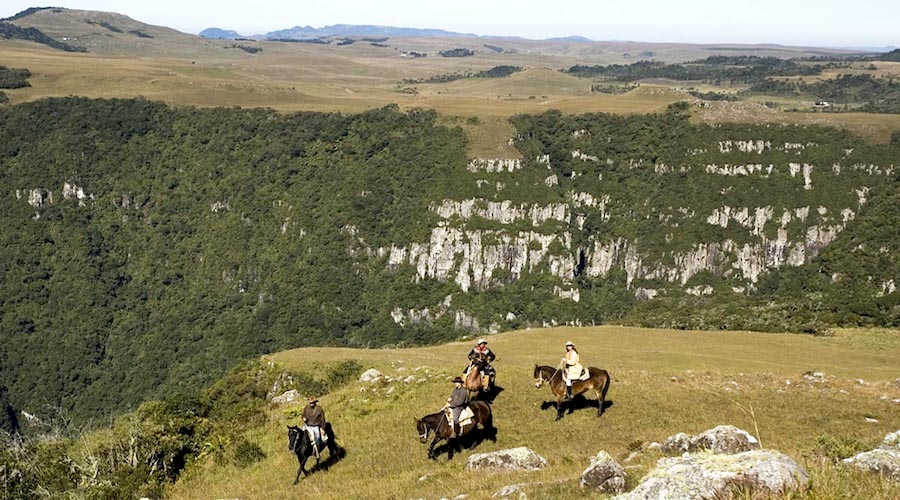Cecilia Jamasmie | November 4, 2022 |

Rio Grande do Sul is home to a large number of farmers and agronomists.
(Image courtesy of Aguia Resources.)
Aguia Fertilizantes, a unit of Australia’s Aguia Resources (ASX: AGR), has secured financing for the first phase of its Três Estradas phosphate fertilizer project in southern Brazil.

The company will receive 15 million reais ($2.97m) from the southern regional development bank BRDE to build the initial phase of what it will be the first phosphate mine in Rio Grande do Sul state and in the country.
“This credit will allow us to proceed with the Três Estradas phosphate project, generating development and income for Lavras do Sul and strengthening the agribusiness of Rio Grande,” the company’s Brazil CEO Fernando Tallarico said in the statement.
Aguia’s goal is to explore the Lavras do Sul deposit, where an estimated 105 million tonnes of phosphate lie, for an initial 18 years. It is also developing a nearby copper project.
The company, which received a key construction permit for Três Estradas earlier this week, said developing the mine will cost 35 million reais (almost $7m).
The next phase in the permitting process will be obtaining an operation licence. There is also the project’s environmental permitting, which Aguia said is under discussion in a public civil action sponsored by the Brazilian Federal Public Prosecutor’s Office.
Although it had a first favourable decision, there is still an injunction request which could prevent the company from starting construction until the court makes a ruling.
The mine will produce organic phosphate fertilizer commonly known as direct application natural fertilizer.
Aguia expects that after the ramp-up period of the mine and processing plant, it will produce about 300,000 tonnes a year, over the 18-year mine life.
Scheduled to be completed in 12 months, the project will contribute to Brazil’s goal to reduce imports of overall fertilizer to 45% of total domestic consumption by 2050 from the existing 85%.
The nation’s phosphate consumption is 7 to 8 million tonnes per year, but it imports 72% of demand from countries like Morocco and Jordan.
Aguia Fertilizantes, a unit of Australia’s Aguia Resources (ASX: AGR), has secured financing for the first phase of its Três Estradas phosphate fertilizer project in southern Brazil.

The company will receive 15 million reais ($2.97m) from the southern regional development bank BRDE to build the initial phase of what it will be the first phosphate mine in Rio Grande do Sul state and in the country.
“This credit will allow us to proceed with the Três Estradas phosphate project, generating development and income for Lavras do Sul and strengthening the agribusiness of Rio Grande,” the company’s Brazil CEO Fernando Tallarico said in the statement.
Aguia’s goal is to explore the Lavras do Sul deposit, where an estimated 105 million tonnes of phosphate lie, for an initial 18 years. It is also developing a nearby copper project.
The company, which received a key construction permit for Três Estradas earlier this week, said developing the mine will cost 35 million reais (almost $7m).
The next phase in the permitting process will be obtaining an operation licence. There is also the project’s environmental permitting, which Aguia said is under discussion in a public civil action sponsored by the Brazilian Federal Public Prosecutor’s Office.
Although it had a first favourable decision, there is still an injunction request which could prevent the company from starting construction until the court makes a ruling.
The mine will produce organic phosphate fertilizer commonly known as direct application natural fertilizer.
Aguia expects that after the ramp-up period of the mine and processing plant, it will produce about 300,000 tonnes a year, over the 18-year mine life.
Scheduled to be completed in 12 months, the project will contribute to Brazil’s goal to reduce imports of overall fertilizer to 45% of total domestic consumption by 2050 from the existing 85%.
The nation’s phosphate consumption is 7 to 8 million tonnes per year, but it imports 72% of demand from countries like Morocco and Jordan.
No comments:
Post a Comment